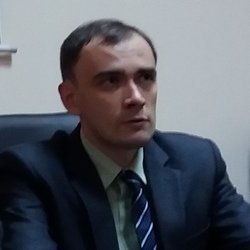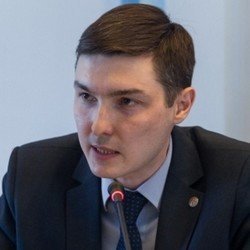Declare impossible to possess: paradoxes of Tatarstan functionaries’ cryptocurrencies
Legally and illegally
In early June, Tatarstan President Rustam Minnikhanov signed a decree obliging functionaries in the republic to declare their, their spouses and under-18 children’s digital financial assets. The head of the republic signed this decree in accordance with Russian President Vladimir Putin’s analogous document, while Putin’s order became a consequence of a federal law On Digital Financial Assets, Digital Currency and Amendments to Separate Legislative Acts of the Russian Federation that came into force in January 2021. We should remind you of its key points:
- It is prohibited to use digital currencies as means of payment — commodities or services may not be paid with them.
- However, it is permitted to possess, purchase or sell cryptocurrencies, exchange them for other currencies.
- It is permitted to issue digital currencies and financial assets if the information system they are issued in is controlled by a Russian legal entity listed by the Central Bank. The same requirements apply to operators of such currency exchange. Nowadays Russia doesn’t have such organisations.

As for mining, neither does the law regulate this process. “Apparently, the law will improve in the future or by-laws will appear,” Kokh concluded.
We won’t see bitcoins in declarations
According to the Russian and Tatarstan presidents’ orders, statesmen will be obliged to declare digital assets and currencies from 1 July 2021. Moreover, people who are candidates for public posts will have to provide notifications about such assets if they hold them from 1 January to 30 June. This will include municipal workers too: municipalities have to develop their own by-laws.
Only one candidate among people who might occupy public posts has sent a notification about digital assets in Tatarstan since the beginning of the year. He is expected to work in the Tatarstan Ministry of Finance’s Treasury Department. Tenders for this post haven’t yet ended, Senior Adviser to the Tatarstan Presidential Administration for Anti-Corruption Policy Alexander Lokhotskoy told journalists.

Why do we need regulations on cryptocurrency declarations in general then? As Igor Kokh explained, the law creates groundwork “for the future” — if (when) Russian cryptocurrencies complying with legislation appear.
Answering Realnoe Vremya’s question, Alexander Lokhotskoy added: the authorities have capabilities to detect cryptocurrencies if functionaries wish to hide them taking advantage of the anonymity of these assets. “There are clear mechanisms to submit requests to law enforcement agencies, registering agencies, the tax service,” he said.
How foreign financial assets were looked for in Tatarstan districts
Statesmen are prohibited from owning not only foreign cryptocurrencies but also foreign financial instruments in general, for instance, foreign companies’ shares. It is permitted to possess Russian shares if there is no conflict of interest.

This year, employees of the Tatarstan Presidential Administration for Anti-Corruption Policy have found information about statesmen who have foreign financial instruments in at least seven districts.
Such functionaries were found in Agryz, Arsk, Baltasi, Drozhzhany, Nizhnekamsk, Rybnaya Sloboda, Chistopol Districts, said Salavat Rakhimov. They hold shares, shares in open-end funds, depositary receipts, bonds of foreign companies. He named those countries these companies are located too: the USA, Great Britain, Sweden, the Netherlands, Cyprus, Israel.
We are talking about different amounts of money. Rakhimov put an example of cases when assets for 46,000 rubles (Arsk District) and 7 million (Nizhnekamsk District) were held. “Not the sum but the fact of violation, the non-compliance with the bans matters,” Rakhimov added.
Also, he talked about a functionary from Naberezhnye Chelny whose bank account was found in Spain. Rakhimov stressed that the functionary could, for instance, inherit such assets — in this case, he had six months to get rid of such assets. Otherwise, dismissal for loss of trust awaits him.